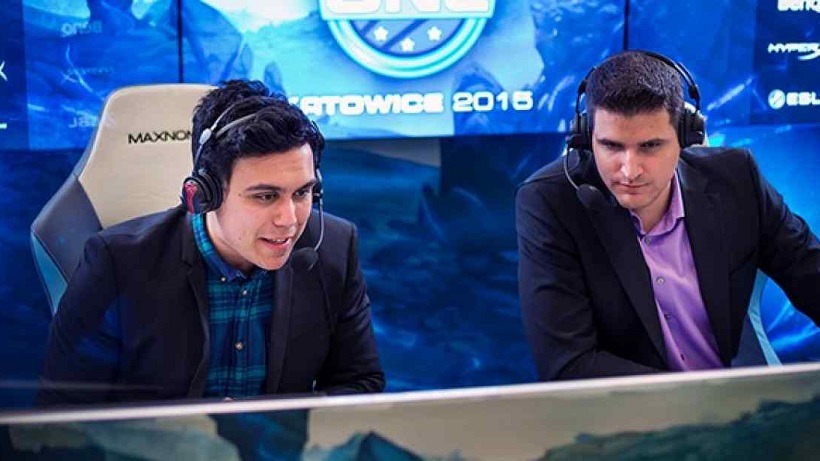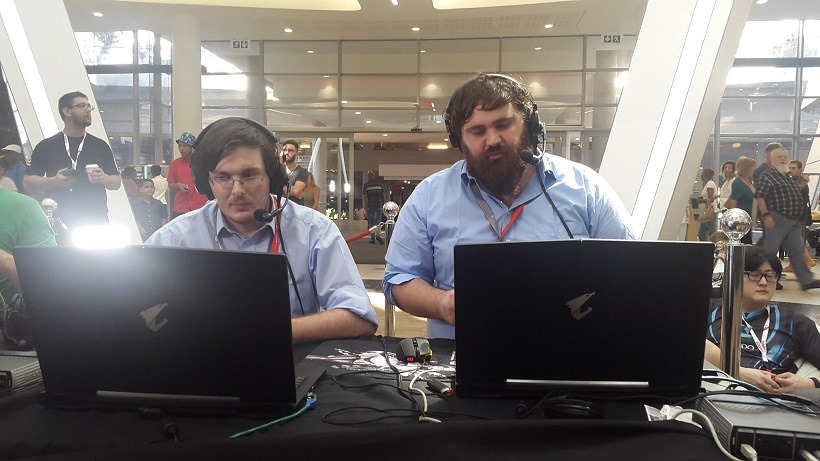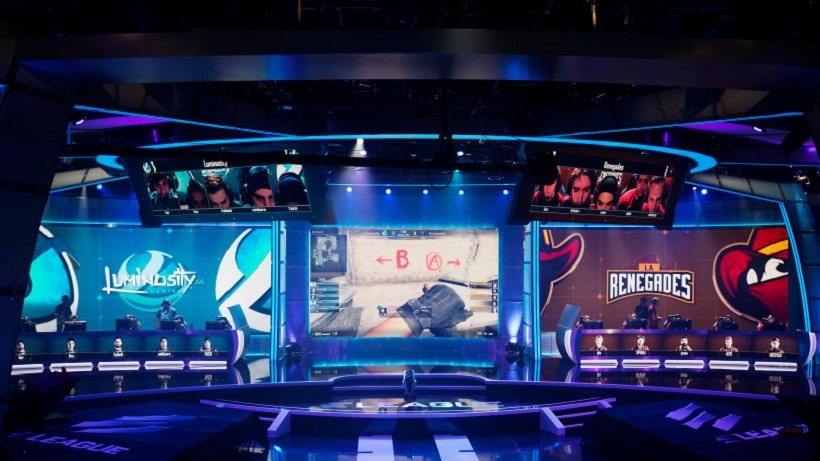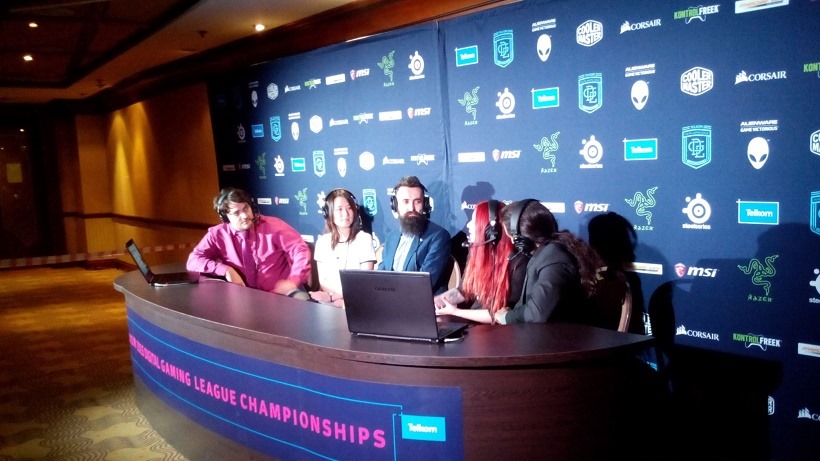SuperSport will once again be airing eSports on TV. Yesterday the sports broadcasting giant announced they would air the Turner ELEAGUE finals on Channel SuperSport 6 for the upcoming months, a deal made available to them by Sky Sports. The general consensus behind SuperSports’ choice to show eSports was varied, and quite frankly the times of the broadcasts don’t make for easy viewing, being at 4:00AM in the morning. However, this sparked some interesting discussions among some circles in South Africa, and the most interesting being whether local eSports will inevitably makes its way into the broadcast studio. Eventually this could be the case, but at the moment we’re still a few years behind our favourite international broadcasters, but the gap is closing.

There are a number of reasons why South African broadcasters are not ready, and the aim of this article is not to make excuses, but rather create some understanding of what goes on during tournaments and live broadcasts for our local tournaments.
Time management
A number of our local broadcasters took up the job as a hobby, and many of them choose to do it in their spare time. A large majority of them do not have the time to cover nearly as much action as they’d hope to, and that leaves very little time to perfect their game knowledge and put much needed practice in the areas which need development.
Ideally shoutcasters should be putting in close to equal time as players if we want to be at the same level. Soon when tournament broadcasts become more frequent, the need to practice individually is replaced by continuous broadcasts which aid development. Learning from your mistakes, while trying at best to avoid them, is a crucial part of every broadcast, and at the moment a large majority of local shoutcasters do not have the time to review a three hour broadcast and rely solely on feedback. Feedback is dangerous at times since they’re often compared to their international counterparts which leave them at a somewhat disadvantage since those grass root developments have already been taken care of.
Proper advertising and marketing
This falls on the shoulders of almost every entity involved in any tournament. While you may consider the above point that many casters don’t have time, the same applies to players who need to complete matches at their own expense. Many of our players and tournament hosts also do this part time, and this makes organizing, advertising, and proper marketing extremely difficult as many of the tournaments rely on the players to set up times for the matches, leaving very little time to properly build an audience for a specific game.
For example, many hosts are told several hours before a game goes live simply because the players had decided that day that they will complete their match. Several hours is not enough time to properly hype up, or even market a big game, which brings in a less than favourable number of viewers. This is essentially nobody’s fault or intentional, but rather one of short comings of a developing eSports scene.
The solution would be dedicating time slots for big matches with ample time to market and advertise the match and ensure broadcasters are ready to go live once the players are in-game.
The costs are too damn high
Broadcasting equipment is extremely expensive. A decent microphone and mixer will set you back close to R10 000, which is far out of the budget of any person interested in trying this out. You may find some headsets have decent mics, but to properly produce a great broadcast, you do need to have at least decent equipment. There are a number of USB Microphones out there, like my Samson C3U0, but these are just for the initial stages of broadcasting.
Nav TV Shoutcasters Shaun “Profeci” Murrell and Devin “Hellbird” Rigotti at the Vodacom Gamer’s Fest
When it comes to live broadcasting at an event, or in a makeshift studio, the proper equipment can cost you upwards of R100 000, or even as high as R500 000. Proper audio and visual mixers, sound engineers, cameras, the whole lot, is almost out of every single persons budget. There are a number of companies out there who have begun to invest in this equipment, but again it makes a dent in any budget as transport and care of this equipment is scary.
There’s also the obvious need for a computer powerful enough to offer a decent production. These computers can cost anywhere between the ranges of R30 000 to R100 000, and these are the PCs which are compatible with streaming software, post production rendering, and having the hardware which matches the needs of some broadcasting equipment, such as audio visual desks. This is why we see the more “amateur” broadcasts being done in South Africa since it’s usually two guys in front of PC with microphones, a camera, and xsplit.
Let’s not forget the personnel costs. Having a production team is crucial to any professional broadcast. Major sporting broadcasts have writers, producers, camera men, sound technicians, video technicians, and more. This is, at the moment, far from our reach, but is a possibility for the future.
The Turner ELEAGUE Studio
These costs may have been inflated, but remember, we’re comparing our scenarios to that of professional broadcasts we see daily on the international stage.
Underestimated value
At the moment a large number of brands and hosts do not see the value in broadcasting in South Africa since, and let’s face it, we’re not exactly pulling in thousands of viewers without the aid of CS:GO or Dota 2 Lounge. Seeking out the proper talent, and compensating them for their work, is often overlooked by many small hosts out there. What they forget is that a large number of the broadcasters who are capable of doing a great job would rather come to some agreement over compensation, rather than see a subpar broadcast further bring the standard down.
This has been the case on many occasions, and it’s actually damaging to the local scene and an insult to anyone who puts in a ton of effort to get to the top of their game. It’s true, anyone can pick up a microphone and talk about a game, and a lot of people are doing it, but you have to see it as an investment when you invite someone who knows what they’re doing to come and cover your tournament.
Nav TV panelists at the Telkom Digital Gaming League Championships 2015
To give an example: Tournamnt Host A is looking to get their tiny online or LAN comp covered. They seek help from Organization B, and are not willing to come to any agreement over compensation. Joe Soap from Tournament A recalls John Doe posting on Facebook about wanting to shoutcast, and he lives in the area, so why not just ask him to come broadcast? John Doe arrives with his R50 headset and offers a subpar broadcast, and those who spectated now assume this is the standard of local broadcasting in South Africa. This has happened before, and it will continue to happen, and it’s ruining the scene. Sure, with some proper equipment and training John Doe could be a great broadcaster, but that’s not up for discussion in this circumstance.
While the value of shoutcasters right now may be small, in the future these are the guys who are going to bring in the numbers to promote your brand and tournament. They are one of the most essential parts of eSports, and while we may be focusing on the players right now and making sure they have enough tournaments to compete in, we also need to focus on the exposure which you gain by bringing in broadcasters.
In Closing
We all need to work together if we want any future for broadcasting in South Africa. In the next few years there will come a time where the above considerations will become irrelevant as major studios, like SuperSport, hire their own broadcasters and offer a professional show. However, at the moment there should be a level of understanding of what goes on behind the scenes and that this is, in fact, not an easy job for many. There’s also the dark side of broadcasting with regard to feuds, egos, and hierarchy, but that’s a story for another day.
Like esports?
Check out esports central
Last Updated: May 27, 2016
























Pariah
May 27, 2016 at 13:13
[mssc]
Admiral Chief Protector
May 27, 2016 at 14:18
[jassc]
Pariah
May 27, 2016 at 13:35
A serious question though. How does one get into the casting scene? Nobody I’ve spoken to says anything more than “just cast”. Yes, but who do you tell that you’re casting? Where do you go? Etc.
I think the time when I was interested in casting is passed now. For 2 years I’ve not received answers, for 2 years I’ve been asking. So I think one other HUGE issue is that there’s simply no information on casting or getting into it, unless you’re super lucky? I don’t even know. This country is weird. I can’t answer a damn thing about it. And that irks me more than you know, as someone who likes to research everything.
Fix that, get more talent into the scene, and you’re already doing more than what’s being done right now. With more people actually being a part of it, rather than just people who want to, but have 2 viewers watching their stream who are friends and family there to support them but who don’t really care about the content.
So anyways. That’s my tl;dr. XD
Matthew Holliday
May 27, 2016 at 13:57
you just start, get proactive, reddit threads, facebook posts, group posts, tell people, make friends with other talent, talk to people about it.
convince the viewers that youre credible, play with the talent, convince them you know what youre talking about.
part of why the current and past local casters are doing well is because theyr with the “in” crowd, it is a popularity game.
involve yourself and get invested.
if you want to start bigger, talk to the event hosters, Orena, DGL and whoever else is current atm. speak to the official peoples, ask what is required, what they need and what they want, ask if you can cast some of the lower seeded games that they cant find casters for.
Pariah
May 27, 2016 at 14:06
So basically conform and suck up. Much like the TV industry. I have no patience for the cliques and BS that comes with being part of an “in” crowd. I am myself. Seems it was fortuitous that I was hesitant without any info.
Saying that. This info needs to be more visible. There should be more available info for prospective casters to get into the game. As it stands, there’s nothing concrete without actually being able to ask an insider. More needs to be done in that area. Otherwise it’ll end up like the TV industry – it’s about who’s washing who’s hands. And that’s really bad for everyone wanting to get into it.
Samman
May 27, 2016 at 14:15
I think South African broadcasters are doing as well as they are because they worked their asses off, after being at some of the events and listening to some of these guys on air on off, its pretty obvious they work their tits off.
Took me 5 mins to find this. From what I have heard, the nAvTV academy is where you want to be.
http://navtv.co.za/cast-for-navtv/
Pariah
May 27, 2016 at 14:17
I’d been to their site multiple times before. That’s the first I’ve seen.
At least something’s being done.
Matthew Holliday
May 27, 2016 at 14:39
TV is exactly how its going to be like, you look at places like joindota or gosu gamers, the people they pick up to write or cast or whatever need to have some level of credibility. with such an unestablished scene, the only way to get that credibility is via references and public opinion.
jump starting off other peoples backs.
but i didnt quite mean it like sucking up, it was more like networking, getting yourself into the top tier scene.
We have a small scene with only a few high profile characters, expanding that network is really one of the only options.
That said, im not exactly an insider, i dont cast, have never casted and dont intend to cast. but self marketing is the only way to get into it, there are no official channels to utilise.
Alien Emperor Trevor
May 27, 2016 at 14:28
Just start, and hope you get a virus*.
*I think that’s the correct term.